Read this article by Inna Vedernikova in russian and Ukrainian at the links.
“Internally displaced persons, like the economy, must be part of our victory” – Oleksandr Slobozhan, AUC Executive Director
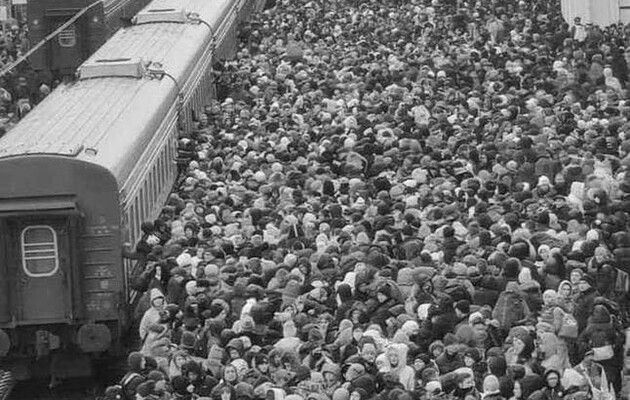
article by INNA VEDERNIKOVA, ZN.UA politics editor
We have gone through the first crisis and shock. We broke the Ruzzian Blitzkrieg and showed that we can fight and will fight. However, negotiations in Istanbul and the withdrawal of some of the aggressor's troops to Belarus (rather, for the regrouping of forces) are not a reason to relax. It is time to open our eyes, accept a new reality and adequately respond to its challenges. Not only at the battlefield. Someone consciously has to produce and supply shells.
The President and his Office hold the international frame. The army is at war. Volunteers are torn between the front and the rear. The communities that took the brunt have thus become completely different territories in their position and capabilities. Mariupol, Kharkiv, Chernihiv and until recent time Kyiv are in the siege, Kherson and Melitopol are occupied, Dnipro and Vinnytsia are ready to strike, Lviv and Chernivtsi - accept IDPs…
How to connect a fragmented country into a single organism that will work uninterruptedly to win? Does our state have a common strategy for securing the rear and maintaining the economy? What does it take to make it work?
We talked about this with Oleksandr Slobozhan, Executive Director of the Association of Ukrainian Cities. He spent two weeks under fire in Bucha, then evacuated his family in Chernivtsi, now he has returned to Kyiv. Mr. Slobozhan is in constant contact with the Ukrainian mayors and sees the whole picture systematically.
Unaccounted IDPs, the choice of mayors and unacceptable leveling
- During the month of the war, we have identified four types of territories, reports Oleksandr Slobozhan. Rear, cities at the front line, cities under siege, as well as occupied communities. These are completely different models of reality, and therefore systems of functioning.
The first type includes Lviv, Ternopil, Volyn, Chernivtsi, Zakarpattya, Vinnitsa, Ivano-Frankivsk and Rivne Oblasts. Yes, Russia bombs facilities of these regions, but the municipalities of these cities have their own challenges.
The main challenges are to provide refugees (transit and permanent) with all necessary things, as well as to stop the economic downturn. These municipalities face the task of providing vital services much bigger number of people than lived there a month ago. These people mostly women and children, they do not have work and need housing, warmth, clothes, food, medicine. The municipalities are to fulfill all this tasks this despite the fact that budget revenues have decreased dramatically, workers from all spheres have been mobilized, and army supplies are to be ensured as much as possible.
These are tasks, which the state is supposed to ensure, but in fact, local governments are solving them and they are rightfully expect the action in response from the central government. However, it seems that some members of the Cabinet of Ministers still do not understand the situation.
- Could you please explain in details?
- The latest example is Resolution 333 issued by the Cabinet of Ministers, which concerns IDPs (internally displaced persons). Currently, the presidential program for receiving and settling people is being implemented. It is supported and implemented by local governments. They find a solution how to provide people with normal living and working conditions.
However, suddenly someone submits a norm to the Government Decree that the whole process of providing IDPs with the necessities should be financed by local budgets. Unfortunately, we have already seen the result of this decision, and it is negative for the country and the people. If the municipalities initially met and received hundreds of thousands of refugees through volunteering and their own resources, now the mayors are considering whether to support IDPs or pay salaries to the public employees.
-Thus, Mr. Nadal, Mayor of Ternopil and Mr. Martsinkiv, Mayor of Ivano-Frankivsk faced a choice: to give everything to the displaced (this is in addition to the fact that local authorities ensures financially the functioning of Territorial Defense Units and others) or to keep their communities afloat? Mr. Sadovy, Mayor of Lviv stated there are 200,000 permanent migrants in Lviv. The city spends one billion hryvnias for ensuring adequate living conditions. Thus, the question raises – where to take money…
- Do you understand what will be the consequences of their choice without a choice? They are obliged to pay salaries. Consequently, they will not be able to organize adequate conditions for internally displaced persons.
Our people are already leaving the country en masse, and many of them may not come back home. The Cabinet of Ministers has not developed a procedure for registering IDPs, there is no system of service and accounting of different types of IDPs - some are transit, some are permanent, there is no individual approach to each person, family.
Some person from Kyiv comes, fills out a questionnaire, then either settles with friends or volunteers help to find him/her accommodation, but no one registers who this person is, where he/she stays, what his/her qualification is, what he/she needs and what he/she can do. This system is important not only for preventing the enemy (members of diversion intelligence groups) easily come to the rear, but also from the economical point of view. This is a guarantee that the IDPs can realize their potential in this difficult time in favor of our future victory.
- Let's discuss the economy of territories of the first type.
- The main strategic issue is not to find accommodation for refugees, but how to integrate them into this area, how to make refugees to become part of the internal front. People should not just sit gloomily at home, devouring their own and the state's resources, but get out of depression, use their resources efficiently and help the state economy work.
-Thus, there is no so to say a map, which will describe who, where and for how long to involve?
- If we want to involve someone at the right and necessary place, the central government should have information what specialist and from where came. De facto local authorities do this job themselves. This is a wrong approach. Individual mayors cannot see the problem across the country and take solutions on his own. The strategy of each community must fit into the national strategy. There is a UN methodology of accounting for migrants. If the state plans something, it needs to have statistics. Then jointly with local authorities, the state can create new points of economic growth, identify the capabilities and needs of a particular territory and state in general.
So far, we have focused on where and how we will resettle people. Only how to resettle, but it is necessary to involve IDPs in the life of community, create opportunities for them!
One more example. Instead of selective approach to the different types of territories, we exempt all small and medium-sized businesses from taxes.
- And what is happening?
-Territories like migrants are different: some territories need help in everything, the others pay for everything. For example, some refugee with a backpack from Kiev. Having escaped from the basement, he rents expensive accommodation, buys things, goes to restaurants, eats, gets a haircut, and so on. The local business of Chernivtsi earns money, and it is great. However, the business does not pay taxes, does not pay legally, it was exempt from taxation by law. And apartments for rent in Chernivtsi for $ 1,500, too, without taxes. No business taxes and no apartment rent taxes, which are needed now more than ever before. Business has been destroyed in a large territory of Ukraine, but we need to finance the Army and save people who are in the epicenter of hostilities.
Does it just seem to me that those who do not pay taxes today are stealing the future of our country, stealing from the fighting army and orphans? The local self-government needs 32 billion hryvnias per month for protected expenditure lines, primarily for the payment of salaries to teachers and other state employees. When all the land and tax innovations have been introduced, local authorities have only one source of income left in the previous rate - Personal Income Tax (PIT), but due to mass migration, PIT revenues have fallen dramatically.
There is already a shortage of certain groups of goods, a shortage of fuel; although this group of municipalities still has enough resources for normal life and functioning.
- Deja vu with the Covid-19.
- Now, as then, the Parliamentary Tax and Land Committees experience pressure from individual lobbyists, who under the guise of, under the guise of war, lobby their personal interests at the expense of the state. A number of bills and norms, currently initiated, have a negative impact on the economy. There are no comprehensive proposals for business to stay in Ukraine with prospects for post-war development yet.
However, I hope that in the end, our proposals will be taken into account and the central government will continue to help municipalities with IDPs, with the payment of salaries to state employees, and with the creation of conditions for economic development.
-This week, the Prime Minister spoke about nine priority areas of the government's work in all areas. These are the "New Economic Policy": tax cuts, complete deregulation of business, abolition of import VAT and import duties. Which, according to Shmygal, will have a powerful effect and restart the economy.
-This is important and sends a positive signal. For the future. But it is no less important to promptly ensure the implementation of the declared goals, which can be done only in cooperation with communities. And this is a daily communication with local authorities and the development of clear implementation mechanisms for each previously agreed decision. Which, unfortunately, still does not exist. Otherwise, I would not have the above examples.
The inert Cabinet, wasted time and horizontal ties
- The war has reformatted many things: the President strictly adheres to the framework of statehood, the army is at war, local authorities on earth ensure the functioning of municipalities. But it turns out that the problems we talked about before the war have not disappeared: the Cabinet does not really manage. What needs to be changed in order for the main tool for the warring country to work and really help the Armed Forces?
-To do this, we need to reformat the structure of the Cabinet. It has to be moved to the martial law to make quick, agreed and immediate decisions. Meanwhile, some ministries are working on peacetime patterns. Moreover, some officials today have become more independent of the government, with some even trying to replace it. And this is the main challenge today.
- That is, do we need an Analytical Center, which, having a strategic framework, is to adjust the tactics of the warring state in real time? Saving lives, involving IDPs in economic process of as well as timely ‘slapping on the wrist’ those who earn on someone else's grief.
- There is no need to create any additional center for this; there is the Cabinet of Ministers. Moreover, de facto, the Parliament has already renounced some of its powers in his favor. Many formal things are now simplified, and the resolutions of the Cabinet of Ministers work at the level of laws.
At the same time, working with our specialized parliamentary committee, we manage to find solutions that are vital for the work of municipalities in a war. The latest example is bill No. 7153 (already is for signing by the President), which, among the other necessary administrative norms, provides for the protection of municipal employees, since it makes it possible to pay minimum wages in the current conditions.
Crises show the importance and role of each branch of power.
In the first days of the war, coordination with the central government was only through the OPU, with or without any intermediary participation, as well as with the senior officials of the military administration. The President and his Office are really efficient today. But they cannot be overwhelmed by executive management.
The Parliament, the Cabinet of Ministers, the OPU and local authorities have to complement each other. And now we have a chance to properly balance the system of public administration in the country, making the Cabinet a center for working out decisions in the economic sphere. As professional as our Armed Forces, headed by the President - the Supreme Commander-in-Chief, Minister-Politician Reznikov and General Zaluzhny. It is such a unification and complementarity of efforts that works to win.
So far, the Cabinet is divided into several parts, which often duplicate powers. Three ministries deal with the issues of IDPs, the same number of ministries are in charge of relocations of businesses and the building of new economic ties, too. The scheme of communication between local and central authorities today looks like this: an uncoordinated and unfinished decision is made, questions arise about its implementation, and we, local governments, are looking for solutions and ways to save the situation. Solutions are usually found, but the time and the resources are lost. We are eliminating the nonsense of individual officials, not creating new opportunities.
Who, then is the basis for local government today, which is forced to make decisions in real time while the Cabinet is ‘rocking’?
- The mayors focus primarily on the Armed Forces (to understand how to help and what to expect), plus - volunteers who respond to all requests; and, at the highest level, the horizontal ties within Ukraine and abroad have started to work. We have learned how to cooperate, how to help each other and how to contribute. From the first day of war - the exchange of information, task defining, coordination our common endeavors, search of ways for reaching the objectives are among the priorities for us at the AUC.
Thus, the Treasury cannot make certain payments to the municipalities of the known Kherson and Kyiv regions due to the introduction of objective restrictions after February 24. But what do the mayor of Bucha have to do, for example? There are a lot of dead bodies lying on the streets of Bucha right now? I watched it all with my own eyes. "I am now in the center of the city, and we have the bodies of people lying on the street… Tell me, please, why did you forbid me to pay for everything necessary to bury them?" - explained to the official from the ministry.
This was the situation in Mariupol, in Goly Pristan, in every city on the front line. As long as the government hesitates, changes the legal framework, makes mistakes and corrects mistakes, we help each other. We have to pay tribute to the military administrations, some of which have become our partners and are really working for maximum efficiency. All the rear cities have become a kind of hub, through which both money and resources are redistributed to those who desperately need them.
The feat of municipalities, occupied Hero-cities and the right signals of power
- In recent days, the Dnipro has appeared in the hotspots. Let us identify the main problems of the second type of territories.
- Cities like Dnipro, Kropyvnytskyi, Zhytomyr, Vinnytsia, where it is close to the front and shelling, where it is already shelling and cannonade, but enemy troops have not yet started working on them. And it should be acknowledged that the authorities are showing a more balanced position on these cities. Mayor of Kropyvnytskyi, for example, was almost immediately appointed head of the regional military-civil administration (VCA). In Dnipro, too, Mayor Filatov is in close contact with the head of the VCA. Despite the political differences, Oleksandr Vilkul has been appointed as a Head of the Kryvyi Rih VCA. While his father (longtime mayor) after the death of Konstantin Pavlov acts as a mayor.
At the level of frontline cities, mayors and central government show the greatest cohesion. They have their own specifics there, because the atmosphere of transit of uncertainty next is nearby. There are also tasks connected with IDPs, because people do not stop, but go further - to the west.
The third type - cities under siege. This is our greatest pain and focus.
- In addition to constant missile strikes and border battles, the main problem of the cities under siege - Mariupol, Kharkiv, Chernihiv, until recently Kyiv and others - the severance of logistics ties. And here is the specifics of the work for local authorities and utilities. Without excessive pathos, but cities, in the literal sense, hold on to the heroism of these people. Knowing perfectly their infrastructure, enterprises and businesses, mayors as carriers of very valuable management information manually put cities on the military rails. Only in Hostomel the MCA does now work, because it was no longer possible to control civilians there, most of whom, unfortunately, died.
During the war, the executive part of the municipalities was fundamentally manifested, which has always been in secondary roles, but in which all the information.
Including the ‘House books’ (listed all the inhabitants in accordance with their apartments) that helped during the evacuation in the same Bucha. When extrapolating the situation from the national level, the mayors of each city today, like the President, hold the emotional patriotic bar. And the executive committees ensure the functioning of cities.
Thanks to their work, as well as interaction literally in manual mode with military administrations, the besieged cities are standing stoic and continue to evacuate those who want to leave. The heroism of the residents of Chernihiv, Kharkiv, Kyiv, and the men who, after evacuating their families, returned and joined the ranks of Territory Defence Units is a fact that does not require additional words.
- As well as the inhabitants of the occupied cities, who literally go ‘with bare hands’ to rallies against the tanks of the occupiers, and the mayors keep in the process of providing infrastructure. This is probably the most emotionally difficult part of the war. As can be seen from the posts of residents of the cities liberated this week.
"It's all right." Unfortunately, this type of territory still includes Bucha (until last night - IV), Vorzel, Borodianka (the enemy dug in there, and now it is being cleared by the Armed Forces), municipalities of Kherson, Mykolaiv, Chernihiv, Sumy, Luhansk, Donetsk regions. Look at the map, everything is clear there. Fighting is still going on in these settlements, or Russian troops are already stationed there. And this is a serious challenge for local government.
- I will say at once that none of the mayors of Ukraine surrendered (with the exception of the mayor of Balakliia Stolbovy. - IV), while there are questions to some representatives of the city MCA in Donetsk and Luhansk regions about cooperation with the aggressor in the first days of the war. The mayors in these areas, having published appeals of disobedience to the occupiers and confiscated documents, manage the occupied cities remotely. The enemy can do nothing about it. He will not fight with garbage trucks. Creating their own local governments is not part of their resource concept. Our citizens did not greet Russia with flowers, as the ideologues of this war expected.
-That is, the presence of a seemingly ‘strong hand’ does not guarantee protection, while self-organization within the municipality - everything?
- Sure. Decentralization has taught us self-organization. And, of course, let's not forget that every mayor remembers: he was elected, not appointed. Mayors have the high support of their citizens, have experience in organizing people. A striking example of this is the participation of people in the actions already under the occupiers. I'm sure you remember, in Enerhodar, the residents came out to protect all of us from nuclear danger. Yesterday, residents at a rally demanded the return from captivity of the mayor of Hola Prystan in Kherson region.
Let's not forget that a number of mayors are still under siege and occupation. And here the authorities and the President personally are giving very important, correct signals. Do you remember how tense the relations between the central government and the mayor of Chernihiv Vladyslav Atroshenko were? Nevertheless, he was awarded among the first, as deserved by both the mayor and the city.
Mutual assistance in everything. The mayor of Zhytomyr, himself in an extremely difficult situation, delivers the assistance to Slavutych by some detours. Quite a different morale! The same Bucha, from which almost nothing is left - the City-Hero. And the residents know that their mayor is in the city, they are not alone.
- There is contradictory information about Bucha. Did Fedoruk really stay in the city after you left?
Definitely. I am in touch with him every day. But unfortunately, our life is not ‘white’. Some people, sitting in Miami but having local information resources, even now, during the war, work exclusively for the possible resurrection of their own political careers.
- Are you talking about Karpliuk, the former mayor of Irpin? But he seems to have already returned - his photos from Irpin are available online.
- I'm talking about the fact that people are all different. Today, mayors are all defending Ukraine and their municipalities. They have demonstrated the unity of the Ukrainian people, which has impressed the whole world. And this should be taken into account, respected and welcomed as much as possible. This is not the time for political clashes at any level.
-And what in Kherson? Where is Kolykhaev and the head of the regional state administration?
- For their safety, as in other cases, I cannot talk about their whereabouts, but we are in constant contact. In fact, such deeply occupied cities are the hardest test for Ukraine and the mayors. Everything seems to be quiet there, there are no mass victims and the city is not destroyed, but the heads of municipalities are at gunpoint every second. I have personally persuaded a number of leaders to leave the cities they lead.
-Are there many mayors left?
- Mostly mayors in the occupied territories of Donetsk and Luhansk regions, who found themselves deep in the enemy's rear, were evacuated. According to the pattern of the first stage of the war, (2014) "DPR / LPR" enter the city and establish their administration there. And if you look at Zaporizhzhia, Kherson and Mykolaiiv, the Russians marched through the region, but did not carry out any administrative measures.
Only now have some Moscow "specialists" started coming there, trying to assess the economic prospects. But here it is important to note that the Ukrainian government has kept all payments to the people. Moreover, he even paid his pensions early. And this is a very important signal: "You are ours. We are together. Everything will be Ukraine. "
- Minister Iryna Vereshchuk announced 18 abducted mayors.
-On occupied areas, the mayor immediately becomes a target. However, among the abductees are not only mayors, but also starosty and council secretaries. Let us say so, this is a list of top politicians of municipalities. We keep our statistics and react to unacceptable things. As in the case of the mayor of Melitopil, seeking help, including from international colleagues. It is gratifying that some mayors have already been fired. But there are, as I said, losses. The head of the Hostomyl municipality, Yurii Prylipko, was killed by Russian troops in early March while distributing bread and medicine to people.
- Mayors today are ‘flags’ that provide and demonstrate a system of urban governance wherever they may be.
Of course, talking to the mayor of Mariupol Vadym Boichenko, we understand that the siege of the city is a long-prepared history of intelligence. When all infrastructure facilities were neutralized, including gas, water and energy. Why are they hitting infrastructure, hospitals and homes? Because as long as the management system lasts, the city cannot be taken.
That's what they did in Bucha, which I personally watched. Columns of tanks drove and deliberately destroyed gas stations and supermarkets to weaken the resistance of the people.
And the restoration of destroyed cities will be our separate challenge after the Victory, we will have to not just rebuild, but raise them to a new level, to make a model of victory for freedom for the whole world.
- And how does the money go to the occupied territories?
- They come in manually, thanks to the Ministry of Finance and the Treasury of Ukraine. An appropriate resolution is being prepared. Of course, we are critically late here. But something is still being discussed.
Political decisions, as we have already said, are made quickly and efficiently, bureaucratic ones are not.
We are saved by the fact that the Russians are unable to cover the occupied territories with the unconquered local population, either financially or in terms of personnel. This is their clear loss in the war, and I think they already understand it perfectly. The internal opposition also understands this- look at how the Opposition Platform - For Life ‘fell on the ground’, and it happened long before the party was officially banned.
This is also felt in the results of recent negotiations. Unbroken always break someone else's game. Our task is not only to defeat the Russian army, but also today to create conditions for economically developed municipalities and happy citizens of Ukraine after the victory.
Please select it with the mouse and press Ctrl+Enter or Submit a bug










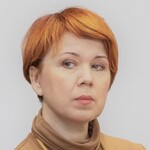
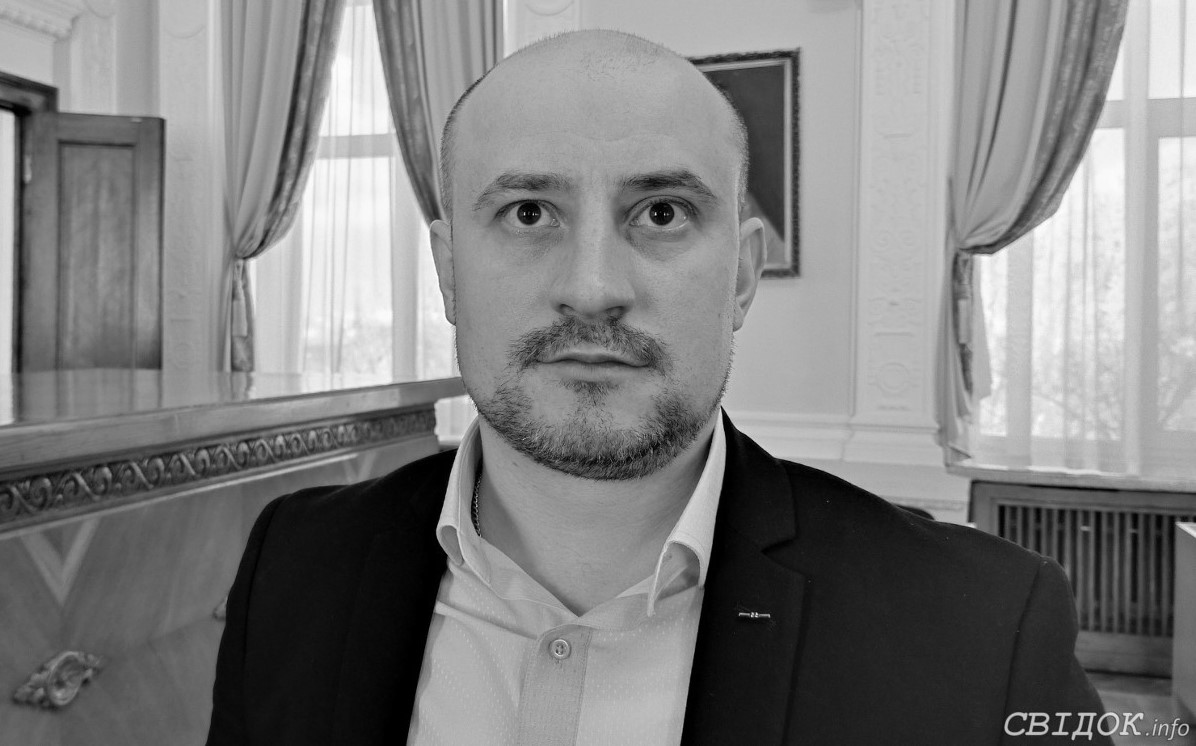
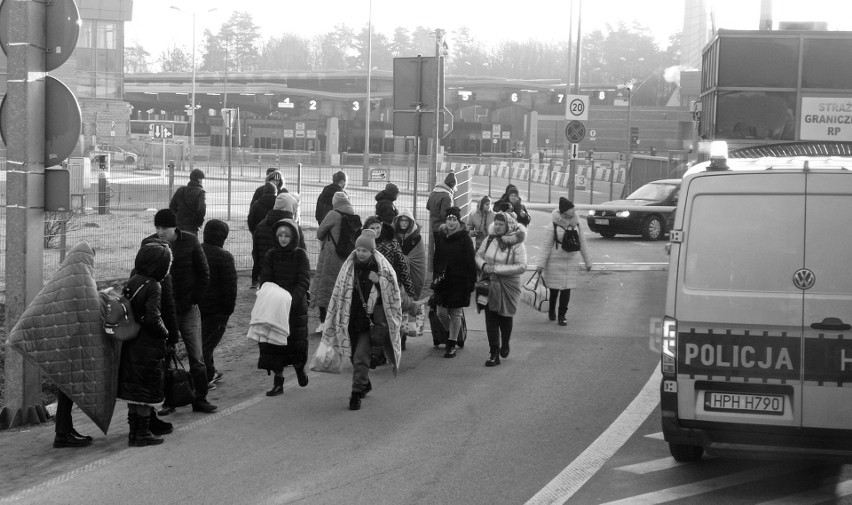
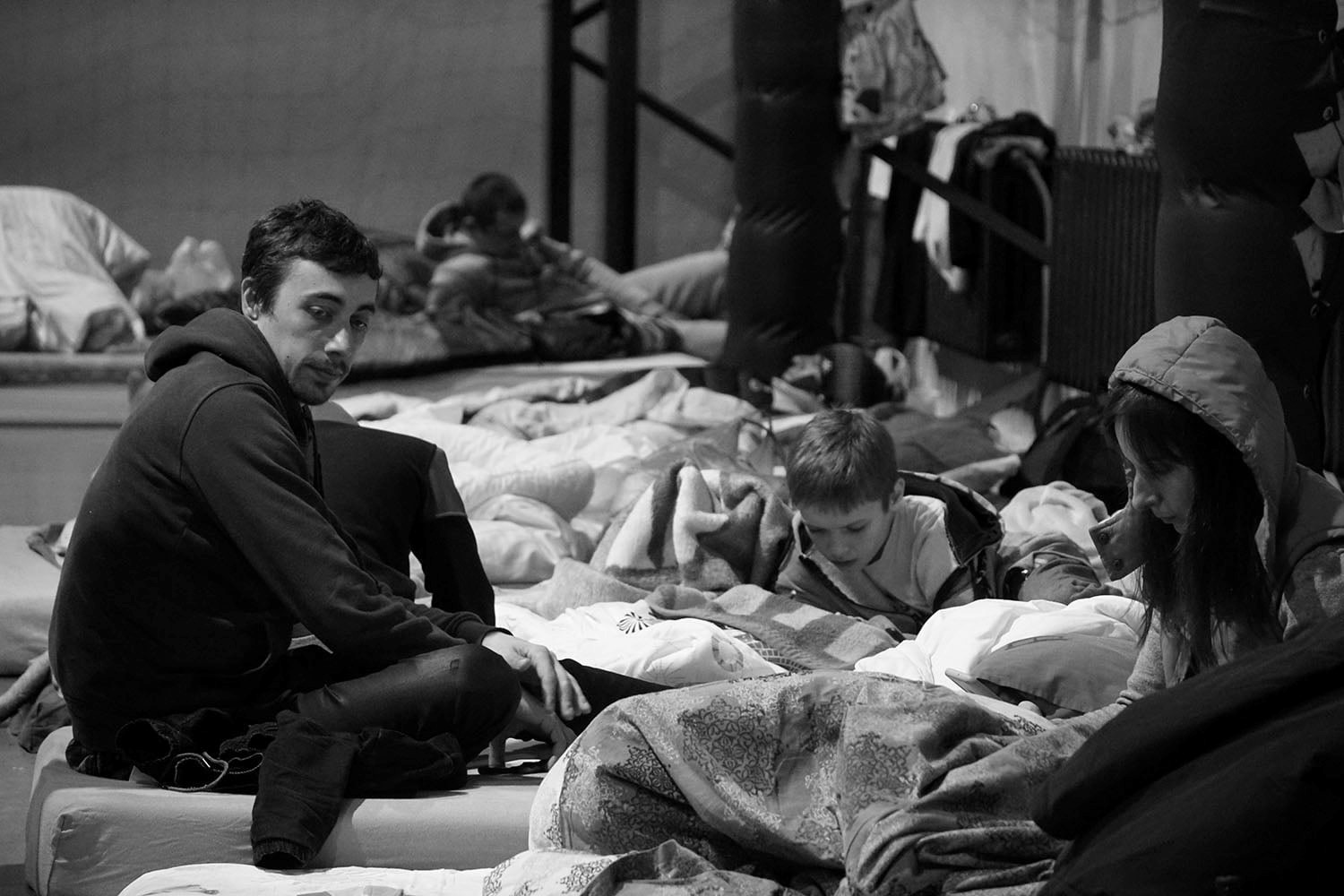
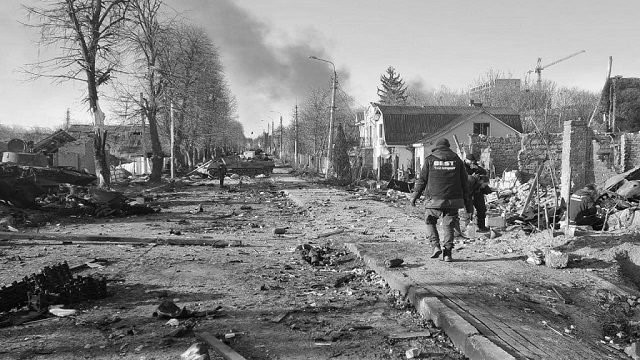
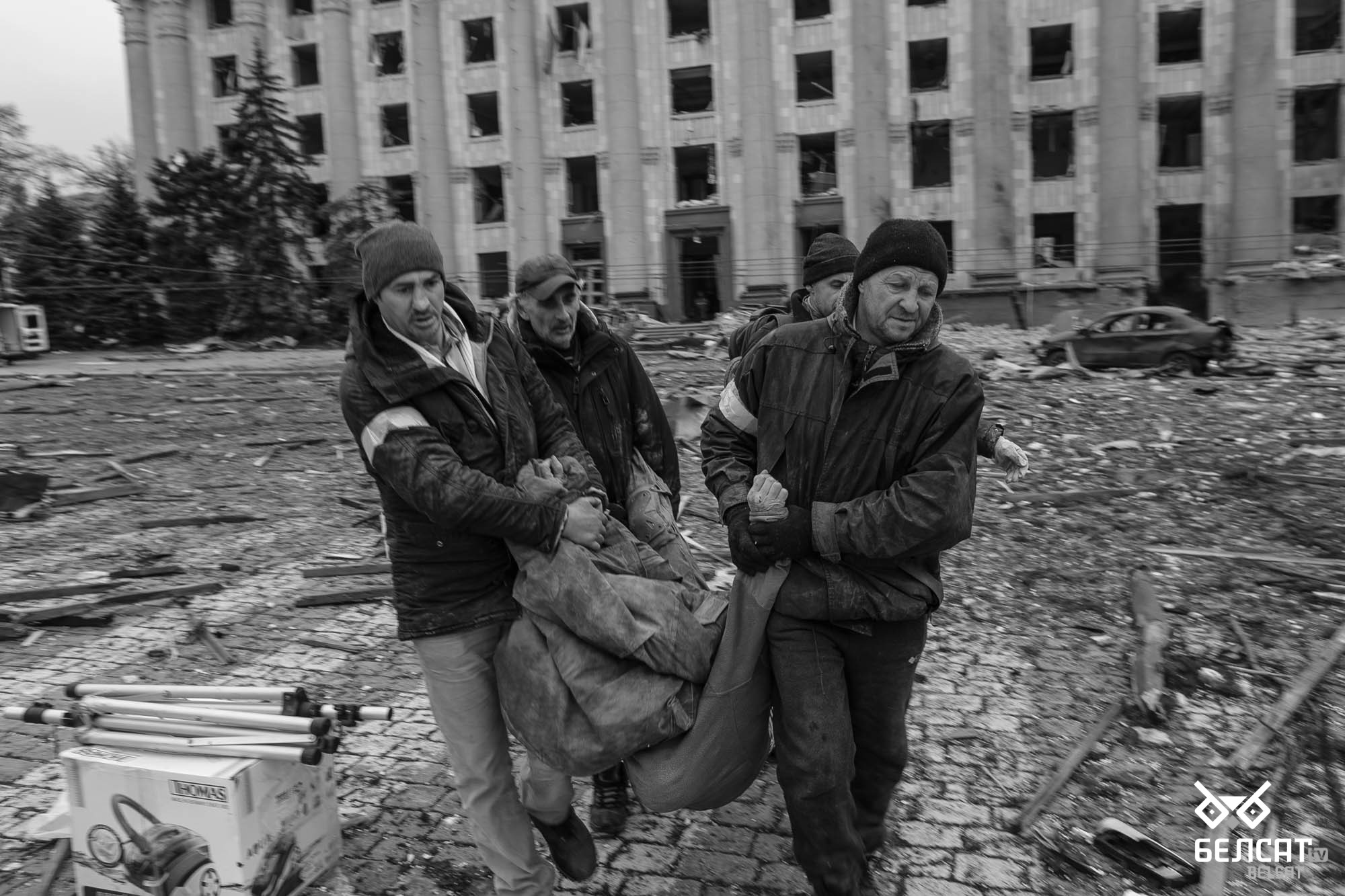
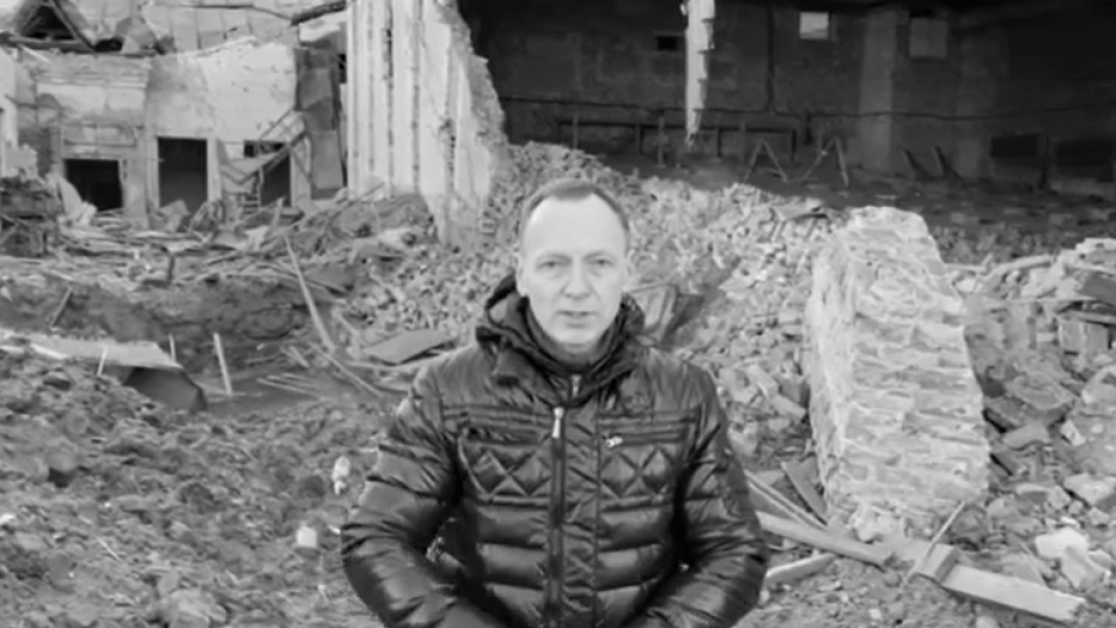
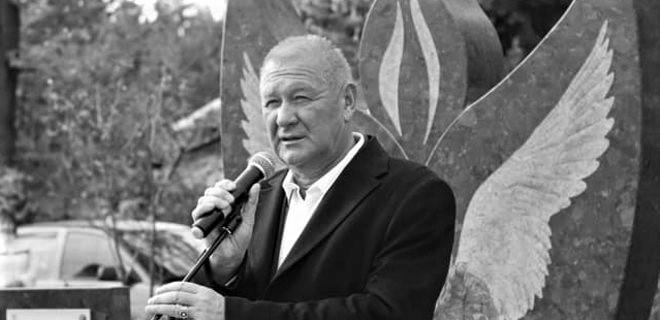
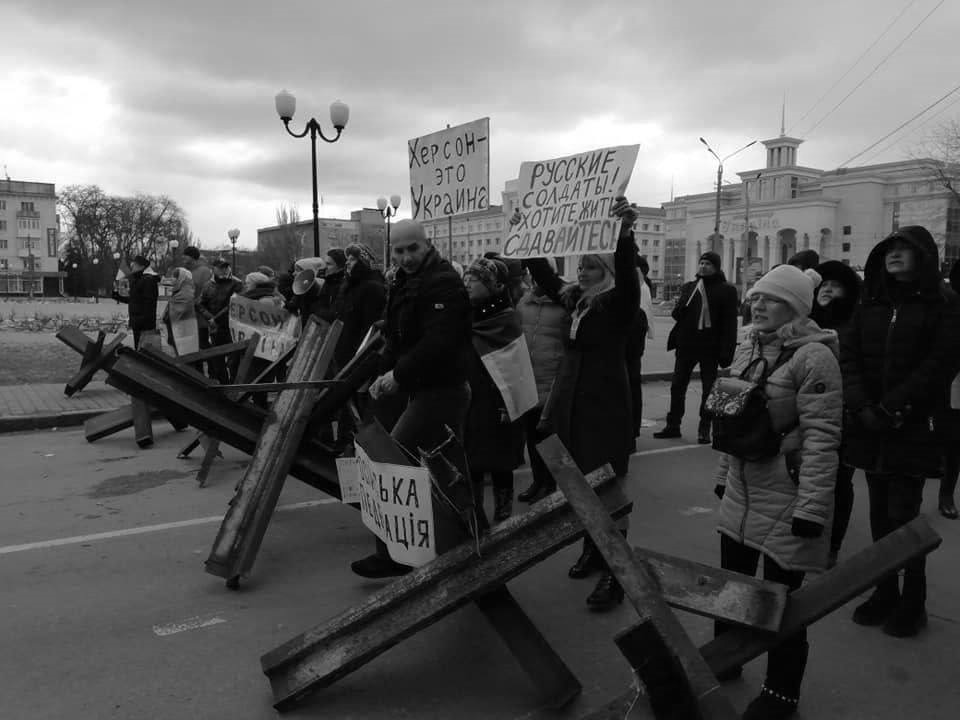
 Login with Google
Login with Google